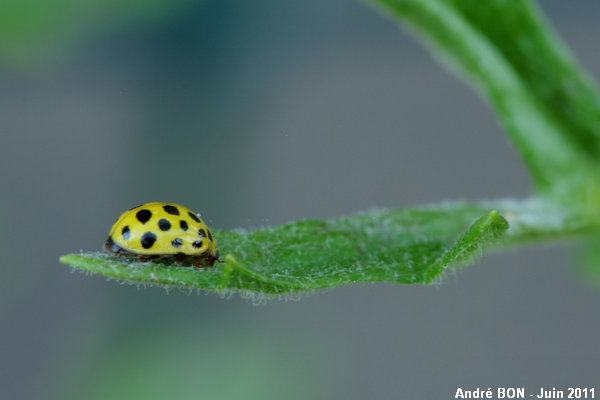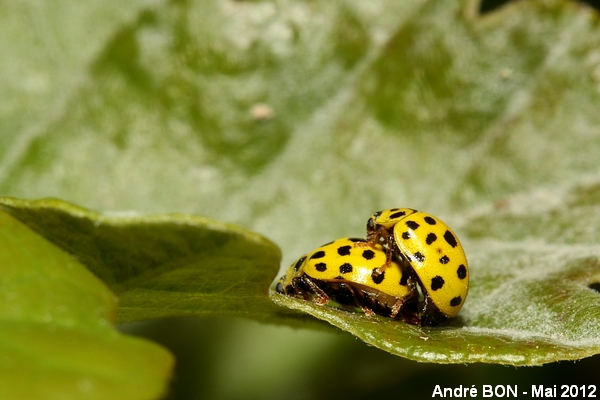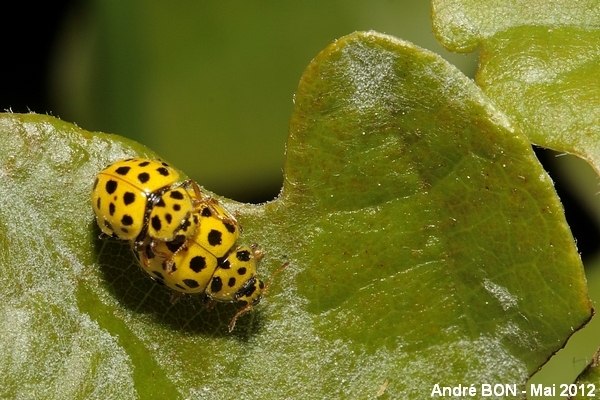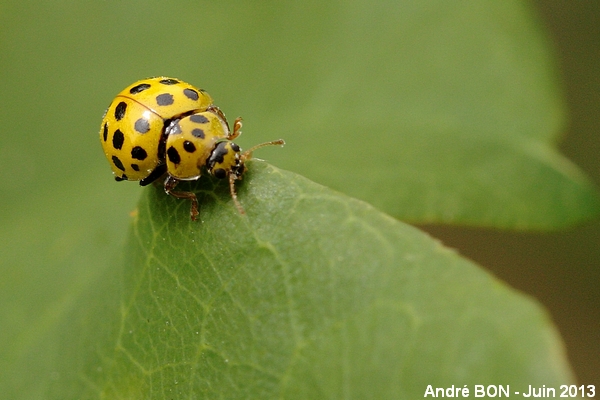



| Twenty-two-spotted Ladybird (Psyllobora vigintiduopunctata (Linnaeus, 1758)) |




|
|
Scientific name: Psyllobora vigintiduopunctata (Linnaeus, 1758) Common name: Twenty-two-spotted Ladybird Other names: Other scientific name: Thea vigintiduopunctata. French name: Coccinelle à vingt-deux points Order: Coleoptera Family: Coccinellidae Wingspan : 3 to 4.5 mm Biotope: Low growing vegetation. Geographic area: Europe. Observation period : April to August. |
The Twenty-two-spotted Ladybird has a hairless bright yellow body. Some males have a more whitish pronotum. The pronotum shows 5 black spots and each elytron shows 11 (rarely 10). The spots are well separated and they very seldom merge together. The antennae and the legs are dark yellow. The femora and the outer edges of the tibia are blackish. The Twenty-two-spotted Ladybird does not feed on aphids but on microscopic fungi (mildew). It over winters as an adult in grass tussocks or under the litter. The larvae are also yellow with black dots. |
| [To know more about the Twenty-two-spotted Ladybird] [Next picture] [Top] |

|
I am making very slow progress on shooting pictures of Ladybirds. This one would have been better if we could see the face and the eyes. It was shot in the evening. This Ladybird was certainly preparing to spend the night on this leaf. |
| [To know more about the Twenty-two-spotted Ladybird] [Next picture] [Previous picture] [Top] |

|
The Twenty-two-spotted Ladybirds for my next year's observations are being prepared. |
| [To know more about the Twenty-two-spotted Ladybird] [Next picture] [Previous picture] [Top] |

|
The 5 spots on the pronotum are clearly visible on this picture. |
| [To know more about the Twenty-two-spotted Ladybird] [Previous picture] [Top] |

|
This ladybird observed in the forest may be the result of the above displayed mating as it has been photographed almost at the same place. |